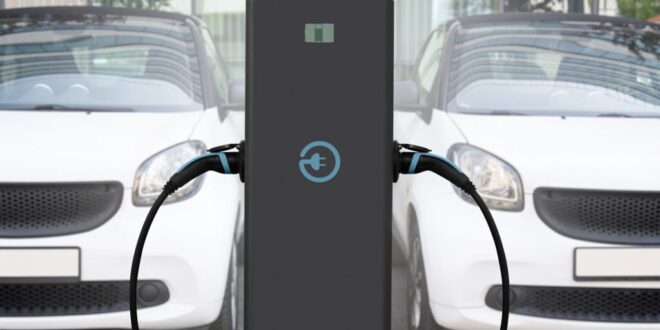As new EU regulations force petrol vehicles off the road by 2030, electric car rental is set to dominate Spain.
Credit : Scharfsinn, Shutterstock
If you’re used to picking up a little petrol runabout at the airport or hiring a diesel for your summer holiday in Spain, you might want to brace yourself – change is coming, and it’s coming fast.
The European Commission has just laid down the gauntlet, saying that by 2030 car rental companies in Spain and across Europe may be only allowed to buy electric cars. This is five years sooner than many in the industry expected. As you can imagine, the entire sector is in a tizzy.
Car Rental sector: ‘Not so fast, Brussels!’
Let’s be honest, car hire is big business in Spain—tourism depends on it, and so do millions of visitors every year. Now, the rules are being changed at high speed. In line with the Commission’s new proposal, rental fleets will not be able to purchase any petrol or diesel cars after 2030. Only electrics will be considered. That’s a bold move for a country where—right now—electric charging points are about as easy to find as a parking spot in central Madrid on a Saturday night.
Industry insiders sound the alarm. Alfonso García, who’s something of a motor expert here, summed it up neatly on the radio: “There’s no denying the push from Brussels. The lobby is huge and could have a major impact on Spain’s rental giants. “But are we ready?” And as he points out, the real winners—at least in the short term—could be Chinese EV manufacturers, who are already itching to flood Europe with their models.
The race for Points and the price tag problem
Now let’s talk about euros. Rental companies will have to invest a lot of money just to stay competitive. Wait until all city cars have a battery, a plug and no longer a tank or exhaust.
Then there is the issue of infrastructure. Spain has a lot of work to do to catch up to northern Europe in terms of charging points, particularly out in the countryside or at tiny holiday airports. Upgrade everything in less than five years? It’s a bit ambitious.
This is not something the industry will take lying down. Germany has already expressed its disapproval of a “one size fits all” electric mandate. They want some wiggle room for hybrids and other low-emission tech, arguing that a more flexible approach is fairer for businesses—and for drivers.
The clock is ticking: five years to make a difference
Car rental bosses in Spain are quietly panicking. Although five years sounds like a very long time in the world fleets of cars, it’s just a blink. Some worry that the new rule will increase costs, just as this sector is getting its bearings after the pandemic. What about tourists seeking a cheap, quick rental to reach a beach that’s out of the way? What happens if there is no charger within miles?
On the other hand, the move does fit into the EU’s wider climate ambitions—cleaner air, less noise, and fewer emissions. Some green groups cheer it on and call it a needed jolt for the industry to move forward. But even supporters admit there’s a mountain to climb—batteries, charging, retraining staff, and—crucially—getting holidaymakers and business travellers to embrace the switch.
Spain’s Road Ahead: Are you ready for the EVs?
So, what’s next? For now, everyone’s watching Brussels and hoping for some clarity—and maybe a little extra time. Spain’s rental car industry is going through a major revolution. Electric cars are here, whether you like them or not. And the next five-year period will be like no other.
Will we all plug in our rental vehicles in 2030? Although it’s still too early to tell, one thing is certain: The countdown has begun, and there will be no turning back.
 Costa News Spain Breaking News | English News in Spain.
Costa News Spain Breaking News | English News in Spain.





